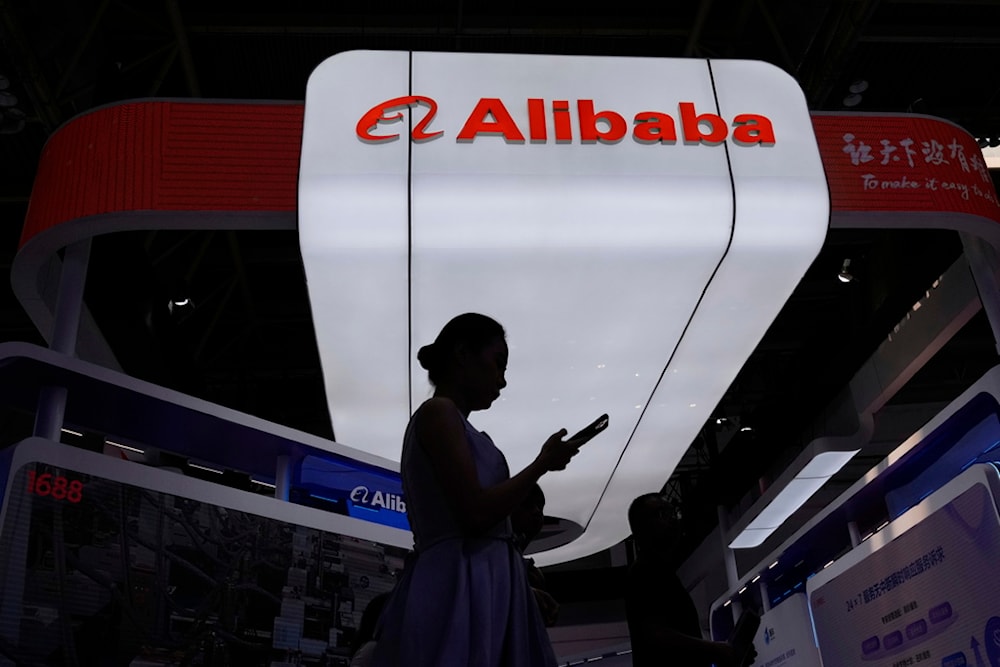Alibaba creates new AI chip to challenge Nvidia
Alibaba introduces a versatile AI chip as part of China’s push to expand domestic technology. With Huawei and others advancing AI chips, Chinese chips are becoming central to the nation’s strategy to overcome US bans.
-

A visitor walks in front of the Alibaba booth during the 3rd China International Supply Chain Expo at the China International Exhibition Center, in Beijing, China, Friday, July 18, 2025. (AP Photo/Mahesh Kumar A.)
China’s biggest cloud-computing company, Alibaba, has unveiled a new AI chip as part of Beijing’s broader push to strengthen its homegrown technology sector. The development underscores how Chinese chips are stepping in to reduce reliance on Nvidia, which has faced US regulatory barriers to selling advanced processors in China.
The new Alibaba chip is designed to handle a wider range of AI inference tasks compared with its earlier models, making it more versatile for cloud and AI services. It marks a significant step in the country’s drive to expand its domestic chip arsenal amid ongoing restrictions from Washington.
Despite advances, Chinese chip manufacturing continues to face hurdles. US restrictions have limited access to cutting-edge chip-making equipment, leaving domestic factories reliant on older foreign machines or less powerful local technology.
To work around these barriers, companies like Shanghai-based MetaX are turning to creative methods, including combining smaller chips to achieve performance levels closer to Nvidia’s H20 processor. Still, issues such as higher energy consumption and limited capacity remain major obstacles for Chinese chips.
Read more: China's chip industry expected to see an 'explosive growth'
Huawei and Alibaba compete in China’s AI chip market
Alongside Alibaba, Huawei has also positioned itself as a flag-bearer of China’s AI chip ambitions with its Ascend processors. Huawei recently showcased a massive computing system integrating 384 Ascend chips, which some analysts say can outperform Nvidia systems on certain metrics despite consuming more power.
However, private-sector firms like Alibaba have refrained from bulk purchases of Huawei chips, seeing Huawei as a direct competitor in the cloud market. Alibaba’s strategy is to produce chips compatible with Nvidia’s existing ecosystem, allowing engineers to adapt programs more easily.
Nvidia remains the global leader in AI chips, but US export controls have sharply limited the company’s role in China. While Nvidia resumed H20 exports to China in July with Trump’s approval, Beijing advised companies to avoid large-scale purchases due to security concerns.
This has created a space for Alibaba, Huawei, Cambricon, and startups like MetaX to develop Chinese chips tailored for AI inference. Cambricon, for instance, recently reported strong revenue growth and rising demand for its Siyuan 590 processor.
Read more: US secretly putting trackers in AI chip shipments to China: Reuters
Outlook for Chinese chips in the global AI race
The rise of Chinese chips reflects both necessity and ambition. While China remains behind in producing chips for training large AI models, still reliant on Nvidia for the most advanced tasks, rapid progress in AI inference and domestic chip manufacturing is narrowing the gap.
As Beijing invests billions into self-sufficiency, Chinese chips from Alibaba, Huawei, and others are emerging as critical tools in the AI race, aiming to challenge US dominance sooner than expected.

 3 Min Read
3 Min Read










